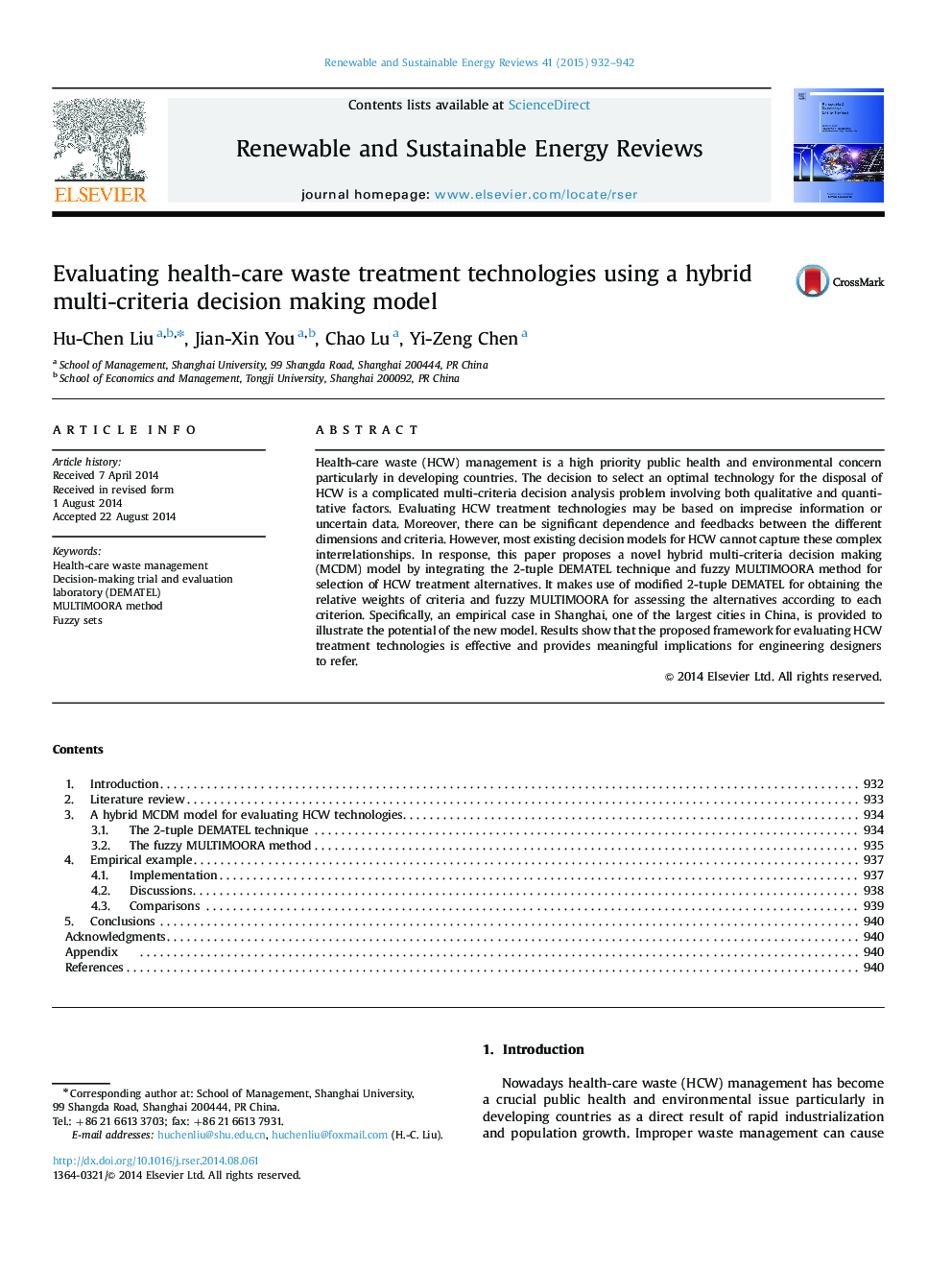| Article ID | Journal | Published Year | Pages | File Type |
|---|---|---|---|---|
| 8118693 | Renewable and Sustainable Energy Reviews | 2015 | 11 Pages |
Abstract
Health-care waste (HCW) management is a high priority public health and environmental concern particularly in developing countries. The decision to select an optimal technology for the disposal of HCW is a complicated multi-criteria decision analysis problem involving both qualitative and quantitative factors. Evaluating HCW treatment technologies may be based on imprecise information or uncertain data. Moreover, there can be significant dependence and feedbacks between the different dimensions and criteria. However, most existing decision models for HCW cannot capture these complex interrelationships. In response, this paper proposes a novel hybrid multi-criteria decision making (MCDM) model by integrating the 2-tuple DEMATEL technique and fuzzy MULTIMOORA method for selection of HCW treatment alternatives. It makes use of modified 2-tuple DEMATEL for obtaining the relative weights of criteria and fuzzy MULTIMOORA for assessing the alternatives according to each criterion. Specifically, an empirical case in Shanghai, one of the largest cities in China, is provided to illustrate the potential of the new model. Results show that the proposed framework for evaluating HCW treatment technologies is effective and provides meaningful implications for engineering designers to refer.
Keywords
Related Topics
Physical Sciences and Engineering
Energy
Renewable Energy, Sustainability and the Environment
Authors
Hu-Chen Liu, Jian-Xin You, Chao Lu, Yi-Zeng Chen,
